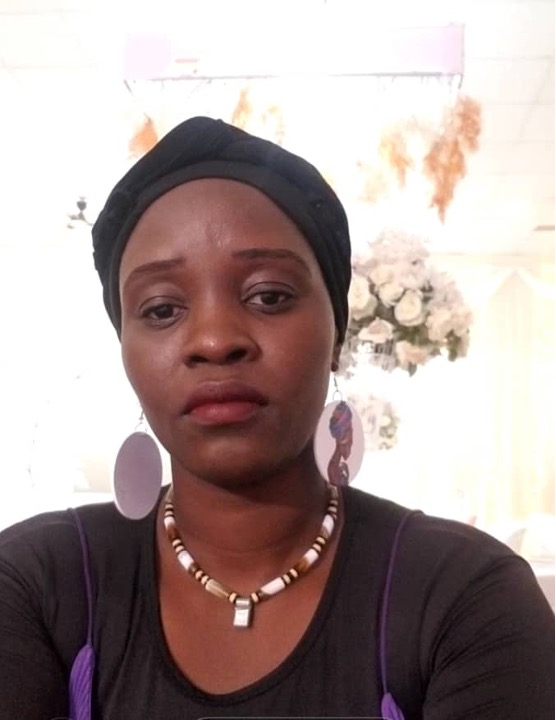Shima Bhare Abdalla has never known the luxury and comfort of a stable and safe existence inside her country’s borders. When she was 11, her village was attacked and razed to the ground, sending her family and entire neighborhood scattering into an internally displaced People’s Camp, at the start of the Darfur civil war.
That was in 2002. Shima and her family relocated into Kalma refugee camp in Southern Darfur, where, alongside over 100,000 other displaced persons, they had to forge out a living, under the watch and benevolence of the United Nations – African Union Hybrid Operation in Darfur, known as UNAMID. It is here that Shima’s human rights consciousness came to life. She enthusiastically embraced whatever little education she could access under the auspices of the humanitarian agencies operating in the camp, to be able to tell the story of her people’s plight.
There was a lot of suffering in the camp, including sexual violence against women and girls, who could not report the full scope of it (the sexual violence) to the predominantly male humanitarian workers in the camp. So, I started reaching out to these victims, and interpreting their stories to the humanitarian agencies documenting the suffering of people displaced by the civil war. By the time she was barely out of her teens, Shima was training women on how to administer first aid in case of violence against them, and on how and where to report such abuses for purposes of future accountability. This activism made her a marked person. Many of her colleagues were targeted and sexually abused, others were killed, and she continuously received threats that she would be next. “In 2008, government forces attacked the camp looking for me and other activists. When they didn’t find me, they killed my nephew and injured my brother. It became clear that I had to leave for my safety.
SHIMA BHARE Tweet
In 2011, Shama escaped South into newly independent South Sudan, where she spent the next two years organizing fellow Sudan refugees to secure formal refugee status and protection from the South Sudan government. The effort was in vain, and in 2013, her and five other colleague human rights defenders (HRDs) crossed further south into Uganda, where they purposed to complete their education. Sharma sought and was granted admission into Cavendish University, where she studied International Relations and Diplomacy, graduating in 2017.
While she pursued school, Shama used her free time to look for and network with other Sudan exiles in Uganda, especially those from Darfur. In 2014, her and other women formed Sudan Women for Peace and Development Association (SWPDA), with a view of reaching out to and supporting colleague Sudan women exiled in Uganda. She and other youth from the Fur community – the biggest indigenous community in Darfur that suffered most of the brunt of the civil war back home also formed a Fur community-based organisation(CBO) in Kampala, dedicated to welcoming Fur youth displaced by the violence.
The idea was to invite them (Fur youth) wherever we came across one into this community, share experiences and support those in difficult situations, and connect others to any work or mentorship opportunities, as they try to settle in this foreign country.
SHIMA BHARE Tweet
Shima’s growing influential role in the exiled Sudanese HRD community in Uganda soon got her on the radar of her tormentors back home in Sudan, who started sending her threatening messages warning her to stop her organizing work in the Sudan HRD community. Faced with the reactivated threats, she confided in a colleague who linked her up with DefendDefenders.
DefendDefenders were very kind and empathetic. They linked me up with the Refugee Law Project which at the time was playing the lead role in refugee issues, and in the meantime, gave me a reasonable subsistence stipend to get me into a secure neighborhood as I processed the paperwork with Refugee Law project. Later, when I told them about the Sudanese Women for Peace and Development Association, they invited us and trained us in areas like digital security, report writing, documentation and advocacy
SHIMA BHARE Tweet
As a new organization interested in human rights work, DefendDefenders also took the trouble to take Shima and her colleagues at SWPDA through the basics of human rights defending, including advocacy, and the relevant laws and institutional instruments.
You know most of us just became human rights defenders by existential necessity. We did not know the dynamics and the know-how of becoming effective human rights defenders. So DefendDefenders gave us our first professional orientation – on the UN and African Union instruments, refugee protection laws, how to document violations to pursue accountability, and much more
SHIMA BHARE Tweet
Shima is now fairly settled in Uganda. The two organizations she helped found, SWPDA and the Fur CBO have firmly taken root thanks to a committed membership, and support from partners like DefendDefenders. Along the way, she also found love, and is now a happily married mother of three.
But she has not given up the dream of returning to a peaceful Sudan. When the most recent crisis broke out in the country on April 15, she mobilized her fellow exiled Sudanese HRDs to form numerous WhatsApp groups via which they could keep in touch with events on the ground back home and connect trapped home girls and homeboys to humanitarian groups on the ground for support. “We cannot give up on Sudan. It is the only country we call home
SHIMA BHARE Tweet

